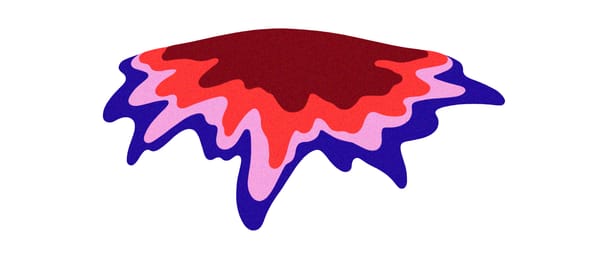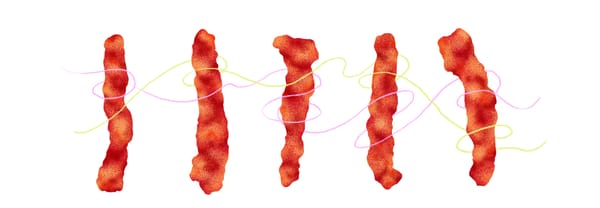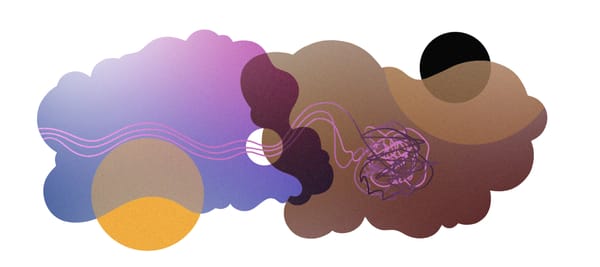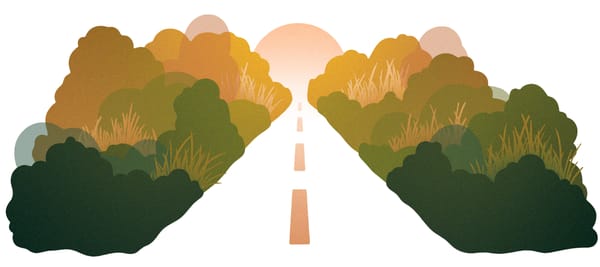Four Menus
by Sheila Squillante | How to feast.
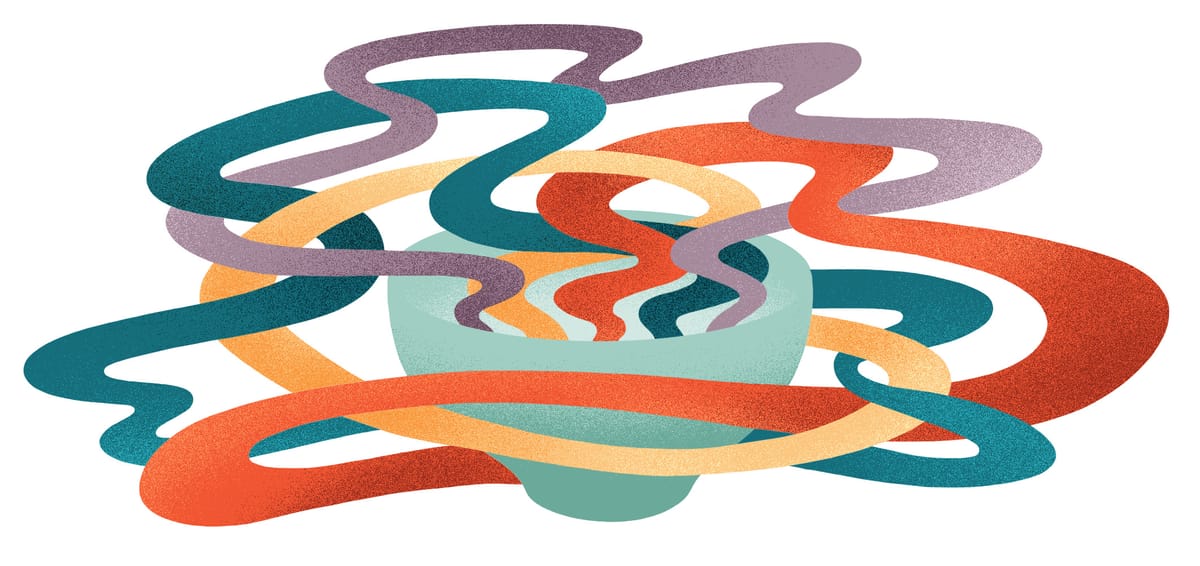
1.
We’re eating Korean soup tonight. Yook gae jang—shredded beef with cellophane noodles, scallions, and some long, fibrous mysterious vegetable. And spice—mouthfuls of red oil that make my nose run and my tongue sing. I am in love with the man across the table, whose nose is running too. We glisten and are happy. Happiness is the long tails of soybeans slicked with sesame oil, the strings hanging from our mouths. We sip soup and poke at condiments with our wooden chopsticks—the kind that snap and splinter, but who cares? I skewer a piece of jellied fish cake, bring it quivering to his lips. Another new, unexpected texture. When we eat together for the first time, it is before knowledge. Before the waitress knows our spice preferences: his flaming, mine not meek but milder. Before she has suggested other menu items (dolsot bibimbap crisping in hot Korean stoneware) and even steered us clear of some (codfish soup—bland, no depth, not good). All before we know where our tastes will take us. I am a self-proclaimed gourmand, have tried everything offered to me at least once, but I have never before this first night eaten the Korean pickled cabbage called kimchi. I know nothing of the way its slight carbonation will incite, the way its crunch will satisfy. It’s a revelation, that first bite. I feel extended; I surpass myself. The whole room ferments! Poetry! Kimchi! Philosophy! Later, when we sit kissing on my secondhand couch, he will exclaim, “I love your eyebrows!” and I will touch them and fall.
2.
Food is love. Samuel Butler said, “Eating is touch carried to the bitter end.” I understand. I was in Paris with friends. We sat in a park where parents played with their children, bundled in colorful wools for the early March chill. They kicked yellow balls, ran laughing after each other, their hoods flapping behind them. “I want to eat them!” I exclaimed. I am thirty-two years old and childless. I am childless and in love with a man who’s not sure he wants children. Some days, I crave. I am a lean witch cackling hungrily into a bone-cold wind.
3.
In my twenties, I was voted “most succulent” among my closest friends. We had just seen a film in which plane crash survivors had to resort to cannibalism among the wreckage and the snow. After, it was decided that my ample figure paired with my high energy would make for the tastiest meat. We made a pact: “If we ever crash on top of a snow-topped mountain and I die, you have my blessing to eat me.” Blessing: an invocation of good fortune. If we crash and I die, I hope they are blessed with the warmth of a fire and time for slow cooking, for dining with relish and reverence, knowing that my spirit hovers, toasting their survival.
4.
For some, food is an inconvenience, something that wastes time. No. Food extends time, slows it for us generously. I cook because I believe in a slow life, a life of praise. I cook for my friends because I see them as divine. I cook to make holy moments, to call out and to reflect. I cook complex recipes in atonement. I gave up religion long ago. Now Sundays are for another kind of supper—one that acknowledges the sacrifices of human relationships. Sundays are for mundane tomato sauce stirred through with thyme and oregano and worship for the sensual world. It’s a kind of worship that makes it impossible to ignore the implication of the body, the way food changes us, fills us with our own good, hearty love. Food is worship and God, to me, is kimchi, kalamata olives, artichoke hearts, and roasted garlic popped hot from its skin and spread warm with butter on bakery bread. God is lamb shanks braised long in orange juice and cabernet; is chopping Spanish onions with a heavy knife; is bittersweet chocolate chunked from dark Swiss bars. Is bittersweet entirely.
Sheila Squillante is the author of the poetry collections Beautiful Nerve and Mostly Human, winner of the 2020 Wicked Woman Book Prize from BrickHouse Books, as well as four chapbooks of poetry. Her debut essay collection, All Things Edible, Random and Odd: Essays on Grief, Love and Food, was published this month by Clash Books. She directs and teaches in the MFA program in creative writing at Chatham University, is executive editor of the Fourth River, Chatham’s journal of nature and place-based writing, and is editor at large for Barrelhouse.
This essay, excerpted from All Things Edible, Random and Odd: Essays on Grief, Love and Food (Clash Books, 2023), originally appeared in Brevity #25 (2007).
💛 THANK YOU to the 6 readers who became supporting subscribers this past week!



